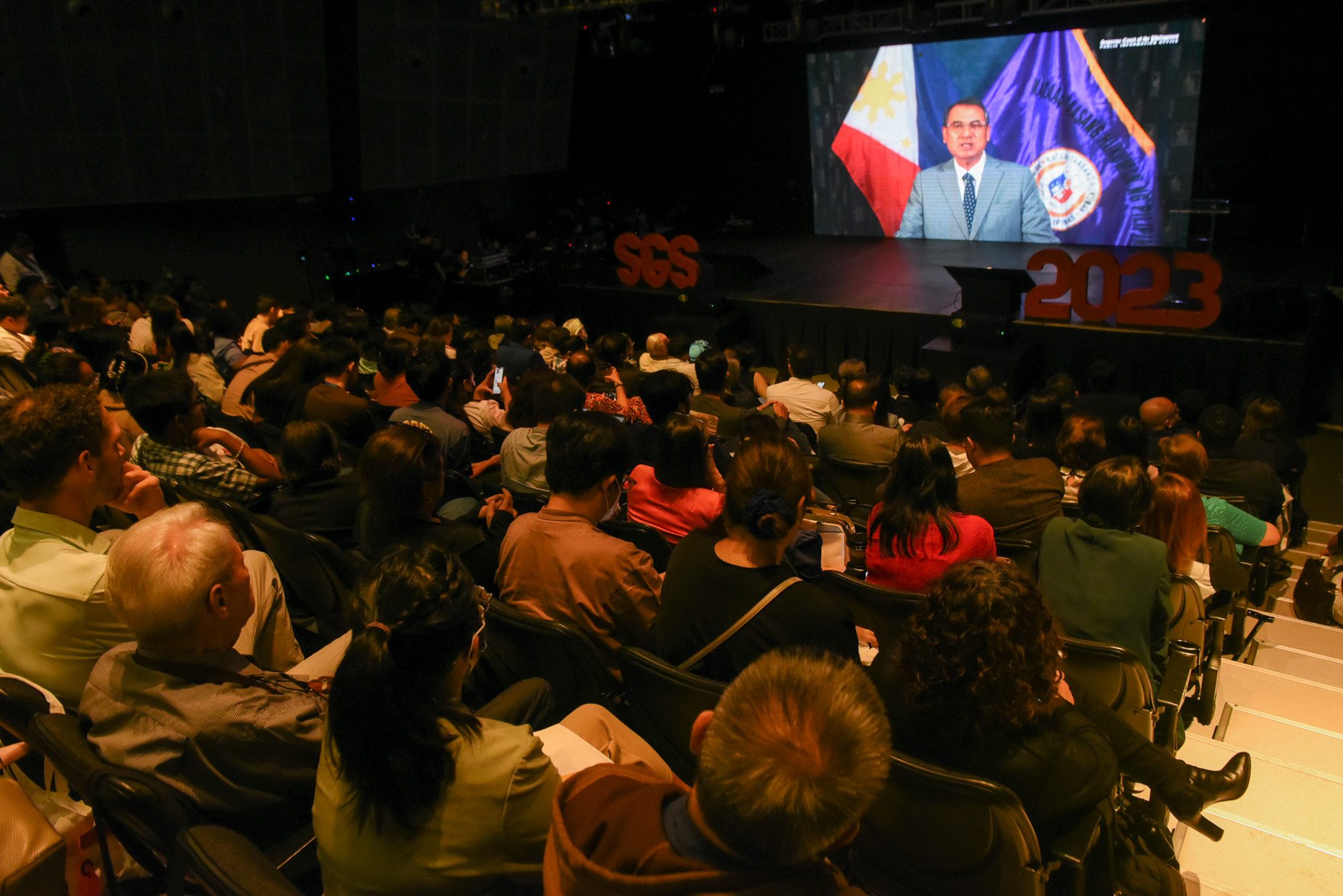SUMMARY
This is AI generated summarization, which may have errors. For context, always refer to the full article.

MANILA, Philippines – Governments should not be left blindsided by technological advances, and instead take on a more proactive approach in dealing with its possible consequences.
While there are no “clear-cut” set of rules given how varied technology could be, Supreme Court Chief Justice Alexander Gesmundo urged the implementation of “anticipatory governance, which is that mindset of adaptability that looks far ahead and prepares for the future.”
“We need our legislators and policymakers to take a proactive role, to have this disposition of anticipatory governance, instead of being reactive in terms of setting up frameworks and guardrails for technology particularly on [artificial intelligence] to ensure that this will ultimately be beneficial to our people and will respect, protect, and uphold their rights,” he said during the 2023 Social Good Summit on Saturday, September 16.
The Manila summit was themed “#TurningTechForGood: From problem to solution,” and centered on conversations on how to better equip the public to handle technological advances.
In his recorded speech, Gesmundo highlighted the concept of regulating technology and that while it is important, there will always be the difficulty in implementing such action, considering how different landscapes are across the globe.
He mentioned the European Union’s AI Act which is set to be a landmark law which proposes to establish obligations for companies and governments depending on the “perceived level of risk” of specific AI tools.
The United Nations (UN) is also eyeing the need for an AI regulatory board. During the 2023 Social Good Summit, UN resident coordinator in the Philippines Gustavo Gonzalez discussed this proposal and later told Rappler that the body “will ensure that any regulation on AI is taking human rights into consideration.”
“Voices here in the society is fundamental [and] It’s not just about experts, businesses,” he said. “It’s about mobilization.”
In the Philippines, Gesmundo pointed to efforts at the Philippine judiciary to study both the risks and benefits of applying AI in the system. He said that technology not just transformed processes, but also “altered judicial thinking” since “expanded access to information has resulted in a comprehensive understanding and deeper analysis of cases.”
“AI has the potential to enhance the accuracy and efficiency of judicial decisions, while at the same time, raise some algorithmic bias,” he said.
Sustaining conversations on future of tech
There are understandably concerns about the rise of AI and technological advancements in general. The Philippines is no stranger to the perils of technology, particularly in the context of the social media boom coupled with disinformation.
For Gesmundo, it is important that “we do not lose sight of people” when discussing the future of technology, most importantly to remember that “it’s not just technology influencing people” and that “all this must be in the service of humanity.”
“It is too easy to think of technology as an external force avalanching change and its consequences on us. But that would be an abdication of our responsibility,” he said.
“There has to be a better way of doing things: one where we use new technologies to address longstanding problems like inequality and injustice, where, to borrow a phrase, the arc of innovation bends toward sustainable development and social justice,” Gesmundo added.
But how do we do this? First, Gesmundo said that there is a need to “open and maintain broader channels of dialogue” among stakeholders, including the general public since tackling the big issue should not be left to the government and the tech industry.
He also cited the importance of critical engagement with technology, or accepting that it is something that we cannot avoid nor embrace heedlessly.
“We have to make space to think of things like ethical considerations, social impacts, environmental consequences, even its impacts on our own selves and relationships with others,” Gesmundo said.
But in the end, the most important thing to be done is to continue asking questions and “begin and sustain conversations” on how to turn technology for good. It is, after all, “our hands on the wheel.”
“That we keep doing it for technologies that we have today, so we can better approach the technologies of tomorrow, not in fear, not in shock, but with a shared understanding that the future is still ours to forge,” Gesmundo said. – With reports from Lorenz Pasion/Rappler.com
Add a comment
How does this make you feel?






![[Good Business] Humanistic national development in the era of AI](https://www.rappler.com/tachyon/2024/06/tl-humanistic-development-of-AI.jpg?resize=257%2C257&crop=284px%2C0px%2C720px%2C720px)










There are no comments yet. Add your comment to start the conversation.